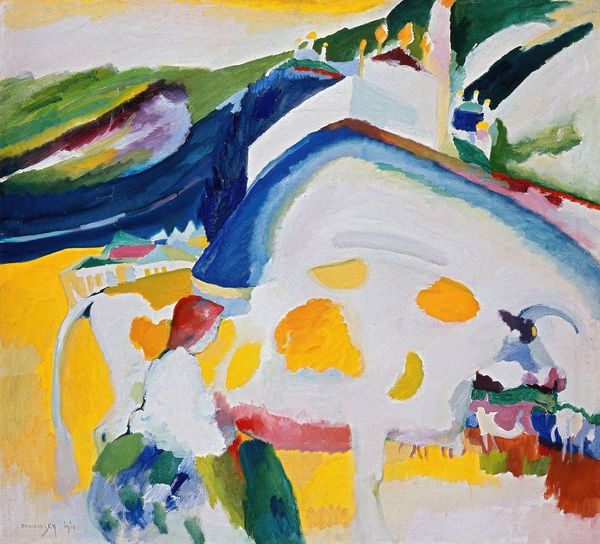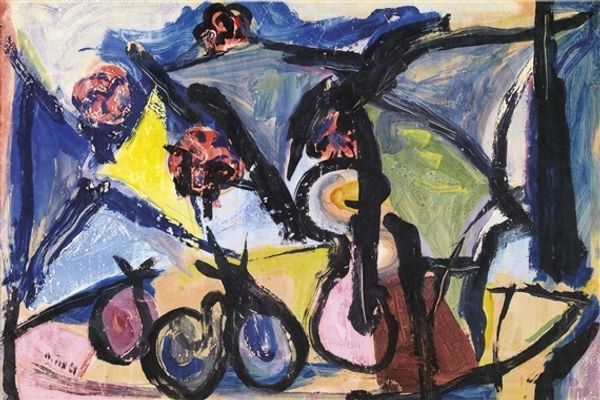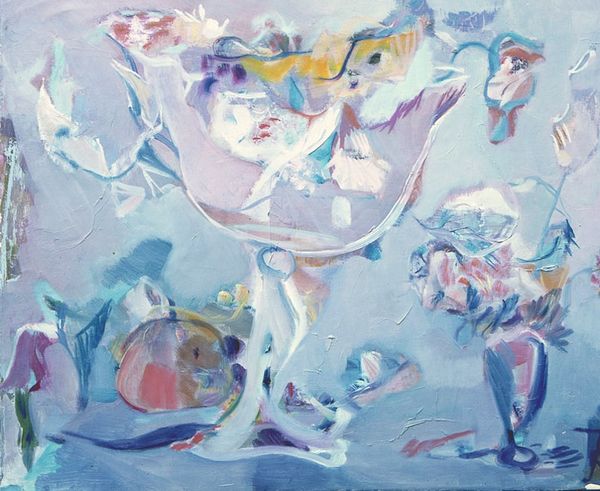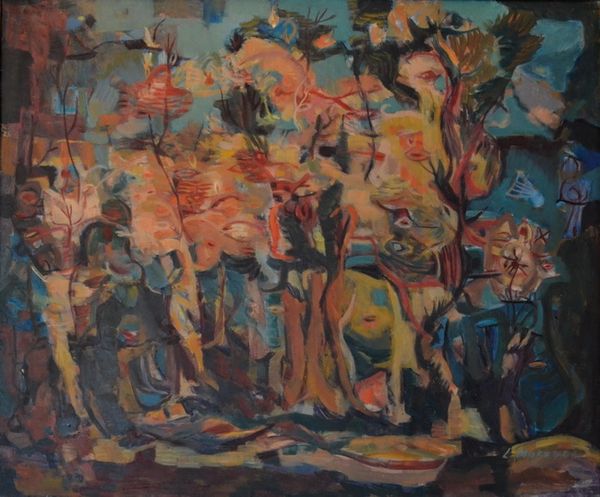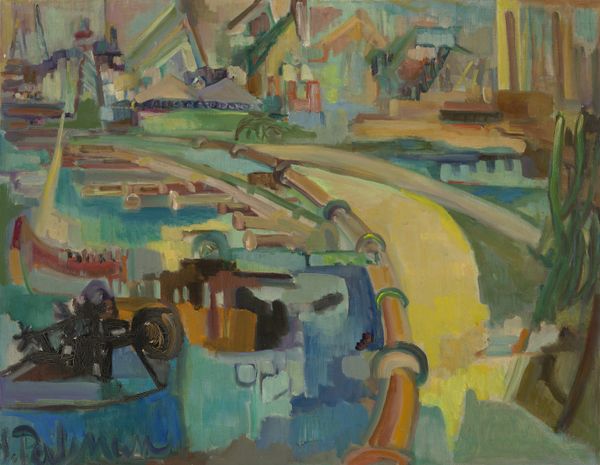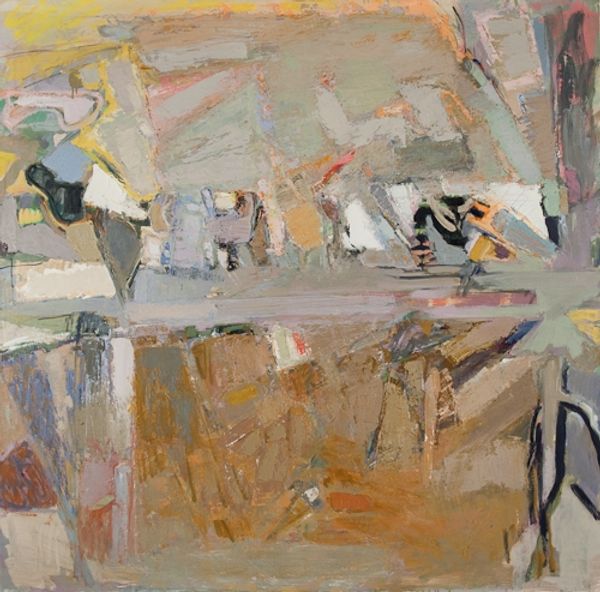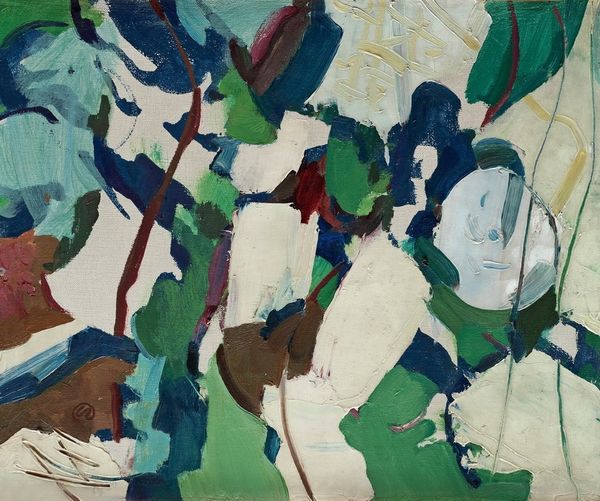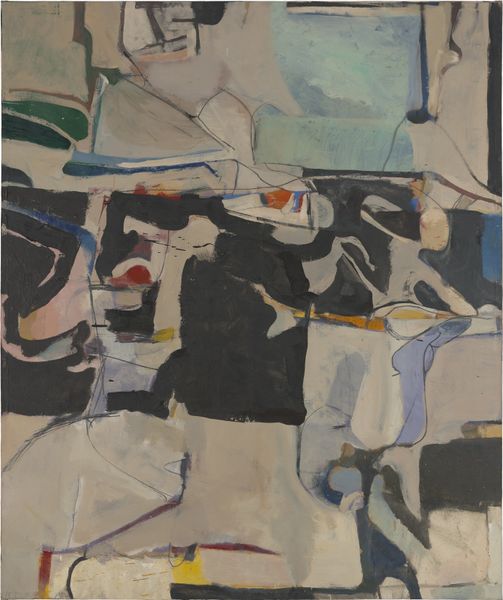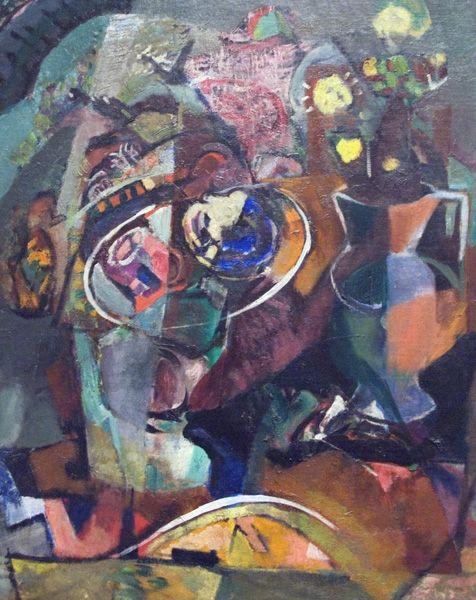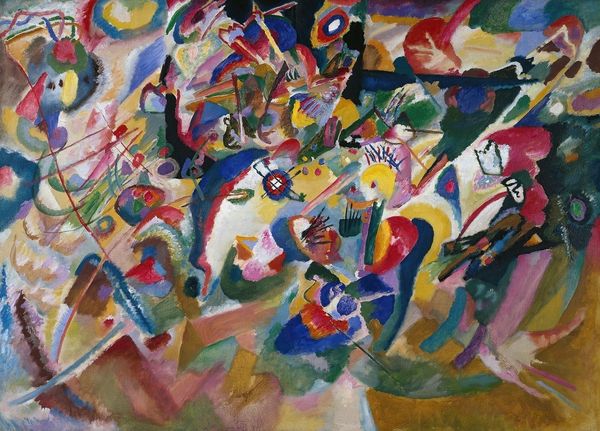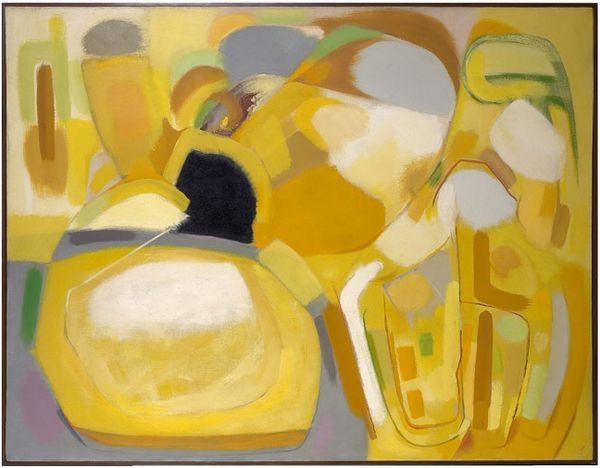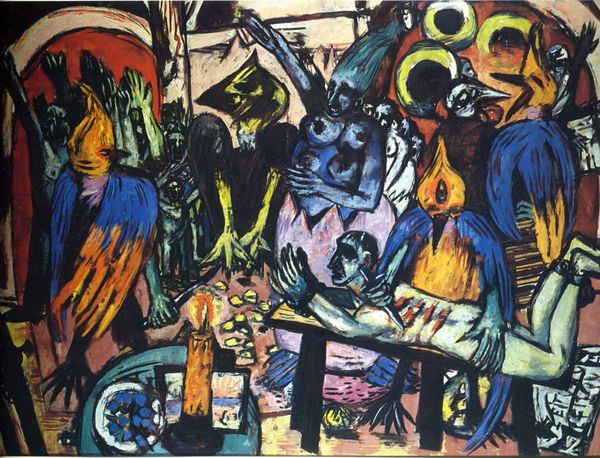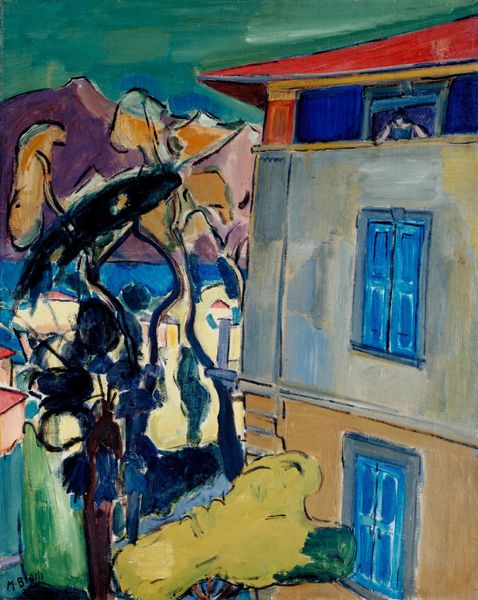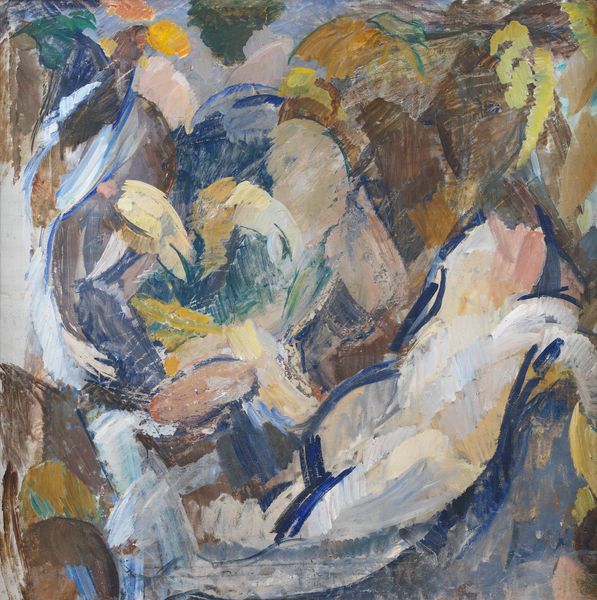
Dimensions: unconfirmed: 1295 x 1600 mm frame: 1370 x 1676 x 62 mm
Copyright: © The estate of Robert Medley | CC-BY-NC-ND 4.0 DEED, Photo: Tate
Editor: This is Robert Medley's "Summer Eclogue No. 1: Cyclists," painted sometime in the twentieth century. It feels like a hazy memory of a day at the beach. What do you make of the recurring triangular shape and the overall composition? Curator: That golden triangle—isn't it cheeky? It slices through the languid scene, almost as if Medley's poking fun at the tradition of pastoral landscapes. And yet, it's also grounding, isn't it? It suggests a pathway, a shared space. What do you feel when you see all those figures, some cycling, some lounging? Editor: There is something idyllic about them; the painting overall feels very warm. Curator: Yes, the haziness you noticed really evokes that feeling. I can almost smell the sunscreen! The bicycles could represent freedom and escape, or even just the simple joy of movement. What a pleasant daydream! Editor: I hadn't thought about the bicycles as symbols before. I'll never look at cycling the same way again!
Comments
tate 3 months ago
⋮
http://www.tate.org.uk/art/artworks/medley-summer-eclogue-no-1-cyclists-t06549
Join the conversation
Join millions of artists and users on Artera today and experience the ultimate creative platform.
tate 3 months ago
⋮
As well as a painter, Medley was a theatre designer, designing sets for TS Eliot and WH Auden - who was his lover - in the 1930s. Initially influenced by Bloomsbury and Surrealism, he later became concerned 'with the movement of human figures in space'. This is one of several paintings inspired by weekend parties of cyclists at Gravesend on the Thames. Its treatment of bodies in motion reflects Medley's long association with the theatre, while the word eclogue, an ancient form of pastoral poem, turns the modern scene into a timeless moment. Exhibited at the 1951 Festival of Britain, it adds an important early work to our collection of Medley's paintings. Gallery label, August 2004
